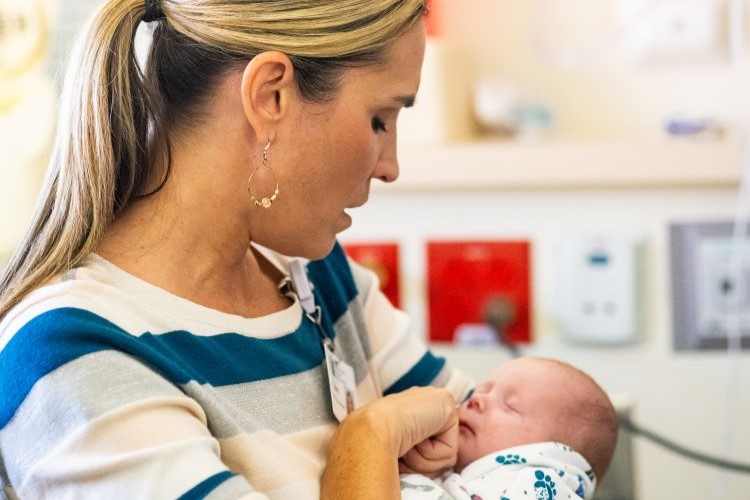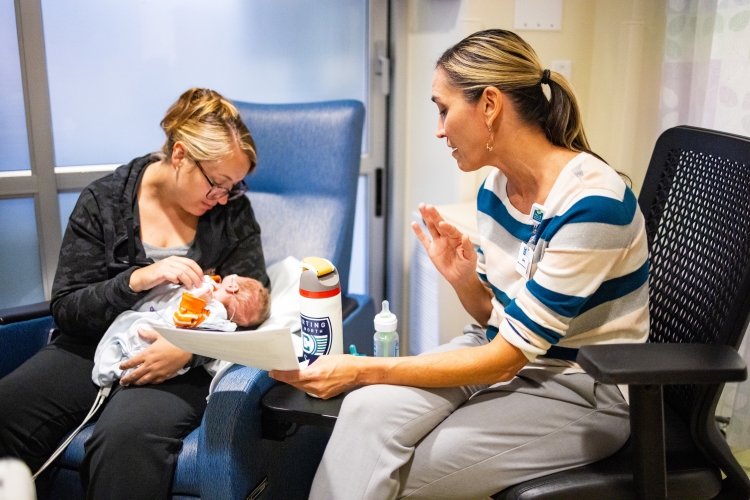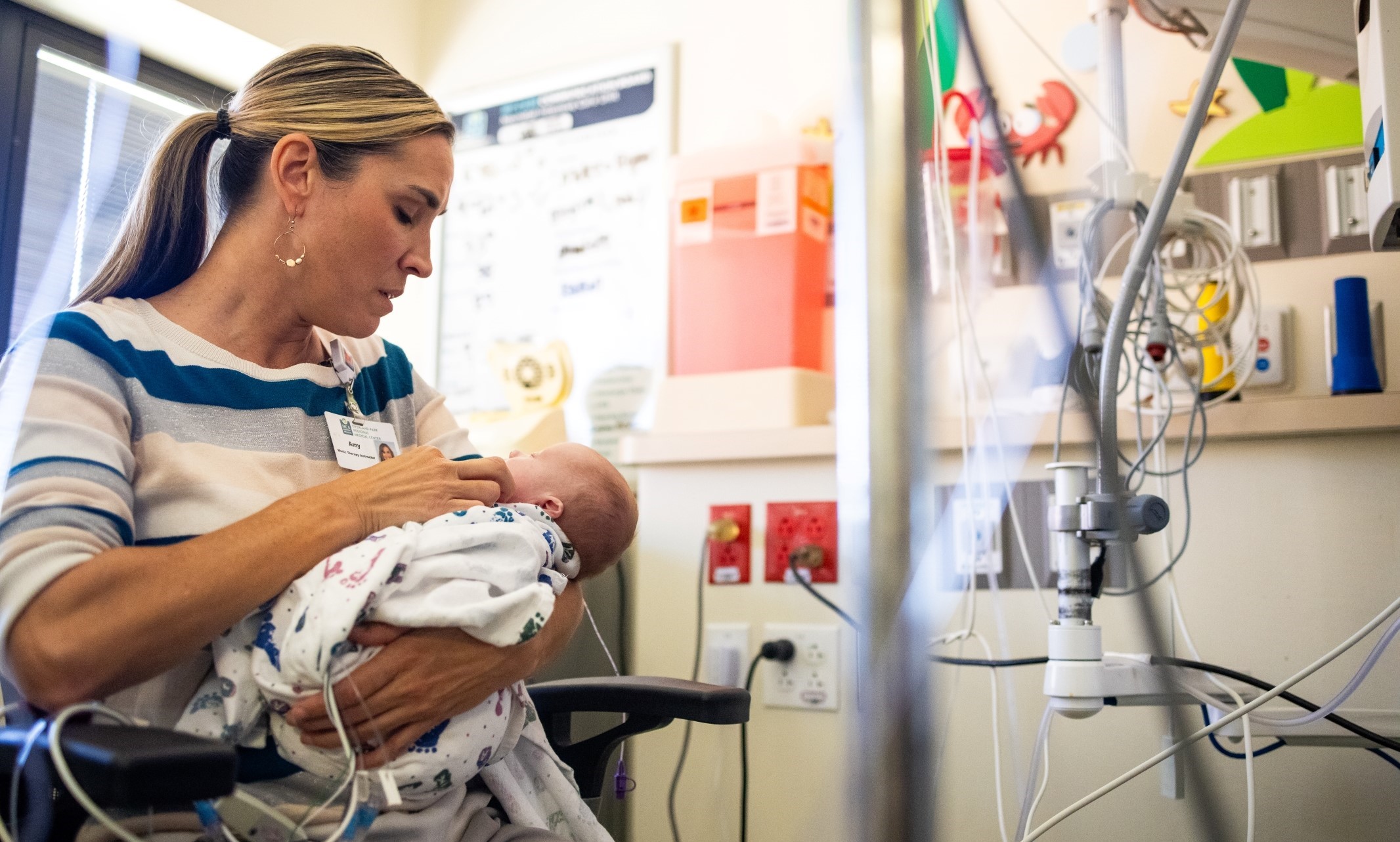When Amy Robertson, Ph.D., walks into the Neonatal Intensive Care Unit, or NICU, at a hospital, it’s with the goal to provide stress relief for premature babies and their parents. Her primary tool is her voice.
“Music therapy is a professional healthcare field; we use music to reach non-musical goals,” Robertson said. “If you think about physical therapy, occupational therapy or therapy with a counselor, those are all using different methods to reach a wellness goal. Music therapy is the same, we just use music as our medium.”
Robertson is a music therapist and music therapy professor with the University of Missouri-Kansas City Conservatory. Her specialty is working with babies who were born prematurely and who often require a stay in the NICU.
“When I first started pursuing music therapy, I had a clinical working in a hospital, and part of that was working in the NICU,” Robertson said. “We started the music intervention, and the infant gave a huge smile, and I just fell in love with being in the NICU. I was amazed at the effect music can have on these infants who are so young.”
The NICU can be an overstimulating environment for premature babies. The sounds, touches and pain associated with medical procedures all add stress. Music therapy can relieve some of this stress without involving any pain medication or medical procedures.

For her therapy work in the NICU, Robertson relies on 30 years of music therapy research and evidence to support the infants’ still-developing neurological systems. The evidence shows that very specific music protocols can have positive effects on infant development without overwhelming them. For these young infants, slow songs sung in person without instruments are the most effective. As they age and develop, more complicated songs and even small instruments, such as maracas, can be used to reach various developmental goals.
“Premature infants are a totally different ballgame when it comes to auditory processing and we have to be aware of what they can take in,” Robertson said. “Lullaby music is slow and repetitive, so it’s very soothing to them. Think of ‘Twinkle, Twinkle Little Star’ and how it imitates the way we speak to infants.”
Positive outcomes of music therapy include increased oxygen rate, stabilized respiration rate and heart rate, faster weight gain and feeding, lower pain scores and decreased risk of brain bleed. Infants who receive music therapy leave the NICU an average of 15 days sooner, a significant time in their young lives.
The evidence currently used by Robertson and other music therapists only applies to infants born at 28 weeks and later. Robertson is currently conducting research to apply those same principles to extremely pre-term infants, born 25 to 28 weeks, hoping for similar findings. Early results are promising, particularly with regards to reduced brain bleeds and pain scores.

The benefits of music therapy in the NICU extend to the parents as well. Robertson says that many parents feel out of control as their infant undergoes treatments and medical interventions. Teaching them about music therapy gives them a tool to bond with and take care of their infant, even after they leave the NICU. For some families, this tool can be a lifeline during a stressful time.
“A couple of years ago, I had a referral for an extremely premature infant, born at 25 gestational weeks weighing less than a pound,” Robertson said. “During a conversation I had with the dad, he told me that the infant’s mom was being treated for cancer, so that was one of the reasons the infant was born so early. Giving him those music therapy tools was a really important way for him to bond and feel like a ‘normal’ parent, especially because Mom couldn’t be there at first. Once Mom was able to start visiting, we ended up writing a song for the infant that they sang whenever they visited the NICU. Mom loved it, because those were moments she could have with her infant when she wasn’t able to have as much time as other moms in the NICU, given everything she was facing. Even after they were discharged and back home as a family, they still sang the song to their infant every day.”

Stephanie Schlatter, PT, DPT, is a physical therapist in the NICU at Overland Park Regional Medical Center. Part of her work is to help identify which infants would benefit from music therapy, and she works with Robertson to connect with those infants and families. She sees firsthand how important Robertson’s research is, as medical staff are increasingly caring for infants born at earlier gestational ages.
“As medicine improves, we’re seeing more of these infants come into our care,” Schlatter said. “We’re having to ask ourselves how we can best and most appropriately help these infants with music. Amy does a great job of stepping in to help with that.”

